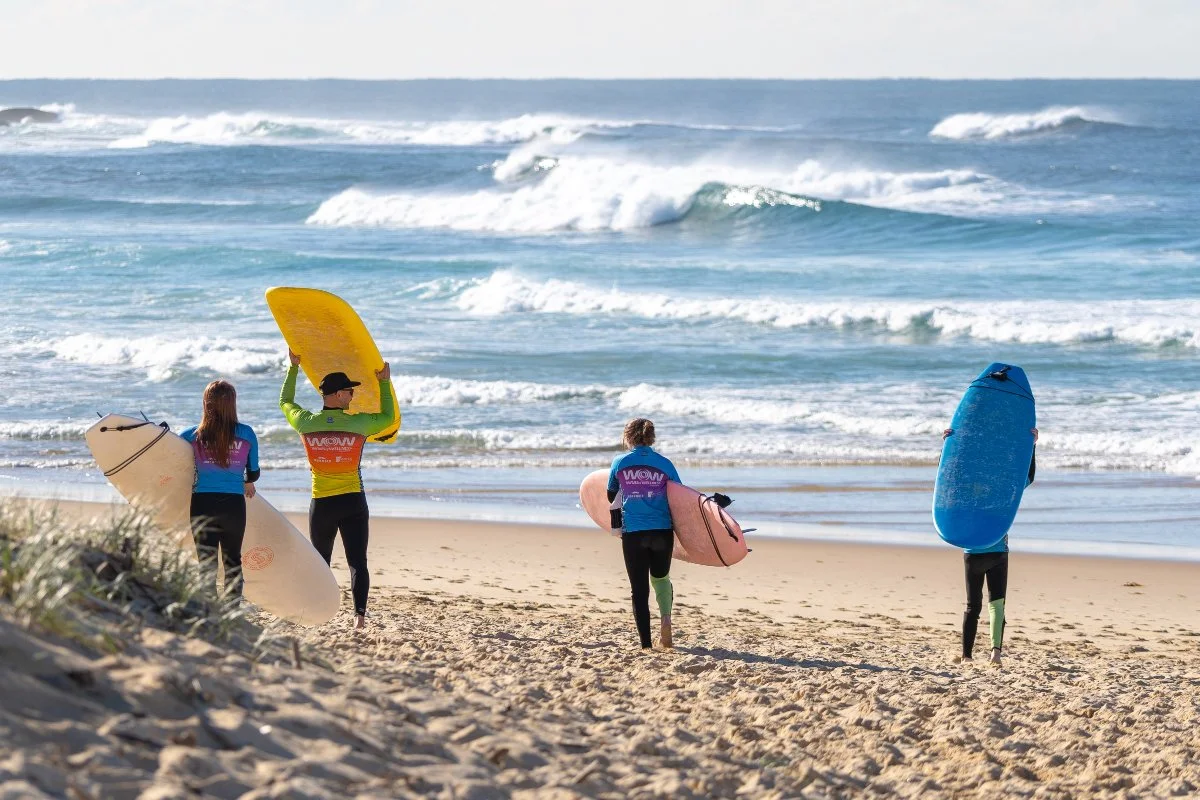How Long Does it Take to Learn to Surf?
Words: Fred Murray
Images: Making Waves Media
‘How long does it take to learn how to surf’ is an age-old question shared by the widest brinks of the surf community. Answers to this vary from years, months, and even days; however, an exact number has never been found. Simply, the complex sport of surfing does not have an endpoint, there is no final goal and no surfer on earth feels like they have reached their full potential.
This blessing of endless potential for improvement does not mean there are no goals and tips which a beginner surfer can focus on. Today we’ll cover some tips and tricks to break down the barriers that stand between you and your desired performance.
Checking the surf forecast
Like most weather-dependent sports, there is little we can do to control the conditions which can make our surfing experience pleasurable or forgettable. We can, however, pick certain times and days which are most optimal for surfing sessions. Bear in mind, this is not dependent on blues skies and tropical temperatures - we surfers are far more focused on winds and swell charts.
Easy and specific, Surfline provides expert information regarding the swell size and wind direction which will ultimately make or break your surf experience. To put it simply, a beginner surfer shouldn't be looking for days that are larger than 2-3ft. This may not sound like much however, this will allow you to better understand rips, sandbanks, and tides. Swellnet, Magic Seaweed, and Surf Forecast also provide exceptional information concerning the surf conditions leading up to your next session.
If surfing is your goal, it should be achievable and realistic, thus picking days that are more tailored to your surfing ability is fundamental.
Going on surf trips
Surfing gives us amazing gifts everyday, however possibly the most enjoyable and rewarding gift of all is the opportunity to explore every little nook and cranny of our amazing coastline. Fascinatingly, the majority of the exceptional surf locations around Australia are surrounded by incredible natural beauty. Exploring these beautiful surf locations will not only improve your surfing, but your overall mental health. In an increasingly urban and screen-heavy environment, outdoor activity in a natural setting has been shown to lower stress and anxiety levels after just 20 minutes. Scoring good waves on a surf trip should be quite low on the priority list, engaging with new surroundings and taking the opportunity to better understand different surf spots and new breaks is far more beneficial.
Watching yourself surf
Yes, this can be a painful experience, and at times it can lower your confidence, however, it is the fastest way to get better. Asking a close friend to film you surfing will allow you to narrow in on what you are doing well and what you might need to work on. Understanding every improvement is all that matters, your style will come over time, so try to just focus on your goals.
Engaging with your surf community
Surfing can sometimes feel like an individual sport, however it requires just as much of a team effort as any other activity. Surf communities can be found just under the surface of almost every beach, regardless of your ability. It always helps to know you're not alone out there. Like most sports, surfing heavily relies on one's confidence. If you are experiencing a sense of low self-esteem, a close friend or a group of like minded surfers is the first step to building self-assurance in the water.
Surfing can be intimidating and most people are more scared of the crowd than the waves and that is totally okay. Take the first step in starting a conversation with a fellow surfer and engage with the community as much as you can. It is fundamental to remember the people you are surfing with want you to do well, and if they don’t - it might be time to reconsider your crew.
An important mantra to remember when you’re learning to surf is “learn to walk before you learn to run” - this will not only keep your sessions enjoyable, but maintain a positive headspace on your journey. Good luck!
Want to learn to surf through one of our surf therapy programs? Take a look here and see if we’re running one in your area.


